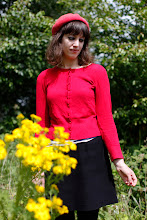 The highlight of the absurdly overcrowded Manchester Histories Festival at the weekend - apart from being inside the Town Hall, amidst its nooks and crannies, mosaics, stained glass windows and Ford Madox Brown murals - was a talk by the former Hacienda DJ, XFM presenter, lecturer and writer Dave Haslam, based on his book Manchester, England.
The highlight of the absurdly overcrowded Manchester Histories Festival at the weekend - apart from being inside the Town Hall, amidst its nooks and crannies, mosaics, stained glass windows and Ford Madox Brown murals - was a talk by the former Hacienda DJ, XFM presenter, lecturer and writer Dave Haslam, based on his book Manchester, England.I haven’t read the book - which Haslam describes as a “biography” of the city, Manchester in his mind being akin to a person with its own “psyche” and “personality traits” - but I’d like to.
Haslam describes Manchester as a “hybrid city”, its population constantly changing and absorbing immigrants throughout the centuries, from those seeking work and better life during the industrial revolution to the annual influx of students. Haslam himself moved to Manchester relatively late, but exudes a love of the city.
The most important of Manchester’s character traits, says Haslam, is its famed “self-assertiveness”. This can be seen in its history of producing radical thinkers, social movements and, in the latter half of the twentieth century, popular culture that has spoken out as a voice for change.
Perhaps because of its second city status, Haslam suggests Manchester has always attracted the ‘other’, been a "location for the alternative", and it’s this sense of “distance and difference”, its autonomy from London and the fact that it’s a long way from the locus of political power and the media centre, that allows countercultures to thrive. That’s why Manchester has historically had a strong DIY element - you make your own entertainment.
Although the talk is wittily entitled ‘From Engels to Elbow’, this seems to be mainly an alliterative device as Engels is more dwelled upon than Elbow. Haslam has a knack for catchy sound bites, also helpfully reducing the theme of his lecture to the link between "chart hits and Chartists".
For Haslam, "pop culture is a necessity”. The fact the talk takes place in the council chamber of the town hall, underneath the Manchester coat of arms and Concilio et Labore motto, shows how much pop culture has become part of the establishment. Haslam is trying to ensure pop sociology is accorded the same importance as what we normally think of as worthy of inclusion in the history books.
His talk draws the not often made link between Victorian Manchester and the music scene that culminated in Madchester which, it seems, are more similar than you might think. He tells us Victorians “lived their lives on the streets”, debating on street corners, pamphleteering and registering protest through strikes. Victorian Manchester was “awash with ideas”.
Reading out Engels’s description of a hedonistic Saturday night on the streets of Manchester, Haslam notes that the excesses of today’s Saturday nights wouldn’t have been out of place in Victorian times - it seems the Victorians, too, were 24 hour party people. Surprisingly, Haslam considers that the Victorians would have valued nightclubs as a place for “interaction”, as opposed to our society’s “retreat into the private realm”.
Manchester was a birthplace of the punk movement, which Haslam sums up as the “desire to be heard”. We need rebel yells, he says, because “the alternative to being heard is silence”. Haslam isn’t so much claiming that Manchester is an inherently musical city, though, with sounds rising spontaneously from its city fabric, more that the famous art it came to be associated with arose out of its many problems. From the overcrowding of Ancoats to the failed Utopianism of the Hulme crescents, out of alienation came creativity. To Haslam, pop music is so important because it allowed the unlikely alliance of “arty weirdo types and tough kids” .
Often, those whose art has become associated with Manchester and Salford wrote as a criticism, from the authors Anthony Burgess and Elizabeth Gaskell - whose novel Mary Barton is an expose of the conditions of the working classes - to the sparse music of Magazine. Shelagh Delaney’s 1958 play Taste of Honey, which on its release was the subject of front page outrage at its honest depiction of Salford life, is cast as a precursor to punk rock with its "no barriers", “back to basics" depiction of reality.
Some of the audience react with shock when Haslam compares the formation of Factory Records to the foundation of the Anti Corn League, but you can kind of see his point. Tony Wilson is described as “an enablist, a propagandist and a conduit”, and that’s it - Factory records may not have made great political statements, but it was the Manchester music scene and Hacienda that put Manchester back in people’s minds and attracted people to return to the city during the bleak Thatcher years, despite Thatcher's best efforts to marginalise the city.
When asked by a member of the audience what the next big thing might be, Haslam acknowledges the absurdity of a 47 year old presuming to predict the future of pop music. Another listener asks how Haslam thinks the recession will affect the Manchester scene. Haslam is critical of contemporary Manchester, which is “property developed to death” and “neutered by big business”. If the message of the talk is that great art arises from an admission that things are “not perfect”, and the need for something to “rebel against” and “escape from”, it seems likely the next big thing will arise through the cracks of the consumer dream.
www.davehaslam.com




No comments:
Post a Comment